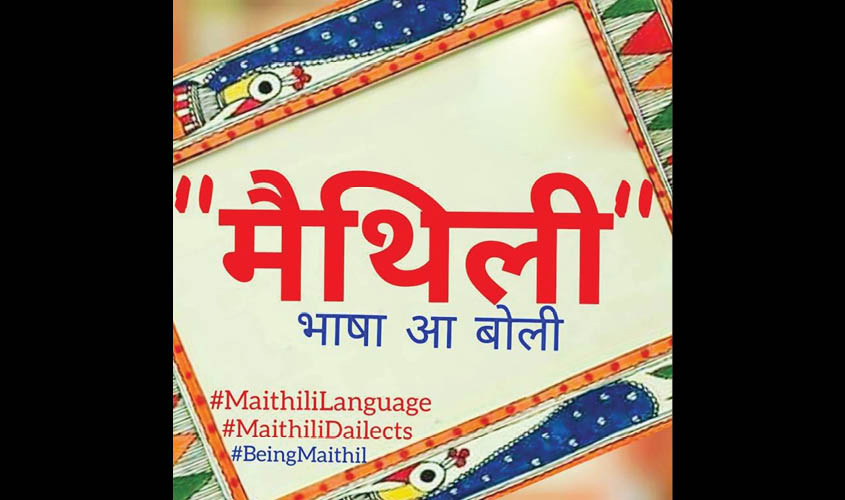NEW DELHI: For the first time, Delhi is witnessing language politics and Maithili, a language from Bihar, has come into play, politically. Unlike in the rest of the country, there has not been any confrontation or politics over any language in Delhi, but this is set to change. Maithili speakers form a big chunk of voters who are likely to play a decisive role in the upcoming Delhi Assembly elections, because of which most major parties have started wooing this segment of voters. Assembly elections in Delhi are likely to be held in a couple of months.
Going by the promises made by Delhi’s ruling Aam Aadmi Party (AAP) government or the Bharatiya Janata Party which is eyeing to dethrone the AAP, Maithili, which is by and large considered a dialect from Bihar’s Mithilanchal and Tirhut regions, will be taught as an optional subject in Delhi’s schools and colleges.
Struggling to exist in its home turf in Bihar due to the spread of English and Hindi, Maithili was put in the “Eighth Schedule” of the Constitution by the Atal Bihari Vajpayee-led National Democratic Alliance (NDA) government in 2004.
Manish Sisodia, Delhi’s Education Minister, in a recent statement said that Maithili would soon be taught in Delhi schools as an optional language to students between Classes VIII and XII. In the view of experts, his statement is a well-calibrated step to woo around 15 lakh Maithili speaking voters of Delhi.
Bijendra Jha, a scholar and teacher at Delhi University, told The Sunday Guardian: “More than half of the total population of Bihar speaks Maithili as their primary language; however, the dialects may not be the same. Most of the speakers of this language have migrated to Delhi after being forced by uneven development triggered by aberrations in the liberalisation policy of the 1990s and now constitute the biggest chunk of Delhi’s electorates and no political party can risk losing them. Look at AAP—33% of AAP’s total legislators are from eastern Uttar Pradesh, Bhojpur and Maithili regions. Similarly, the Congress and BJP have their own supporters among Maithili speaking electorates of Delhi.”
“Maithili, along with its sister language Bengali, Asomiya, and Odia, is one of the important languages of the Indo-Aryan family. As a speaker, I feel proud when I see political parties putting efforts to promote Maithili, but unfortunately, there is no market-driven promotion and the expansion of the speaker base of the language is also limited. In my view, the promise of promotion of Maithili is just an electoral compulsion, forcing all the prominent political players of the city to support the Maithili promotion bid,” Jha added.
Meanwhile, the BJP has also joined the bandwagon and has announced the formation of a committee to help organise a world Maithili conference. The announcement was made by BJP’s acting president J.P. Nadda, who himself has been associated with Bihar.
Sources confirmed to this newspaper that the Nishank Pokhriyal-led Ministry of Human Resources Development (MHRD) has called for the formation of an experts’ committee on Maithili language to look into the matter of preservation and promotion of its script.
Rajesh Jha, a teacher at Delhi University, told The Sunday Guardian: “It is good to see that political parties have come out in support of a vernacular language. India is rich in languages, but due to the apathy of the authorities concerned, many vernacular languages are at the risk of extinction. Importantly, the promotion bid should not be just a political plank.”

